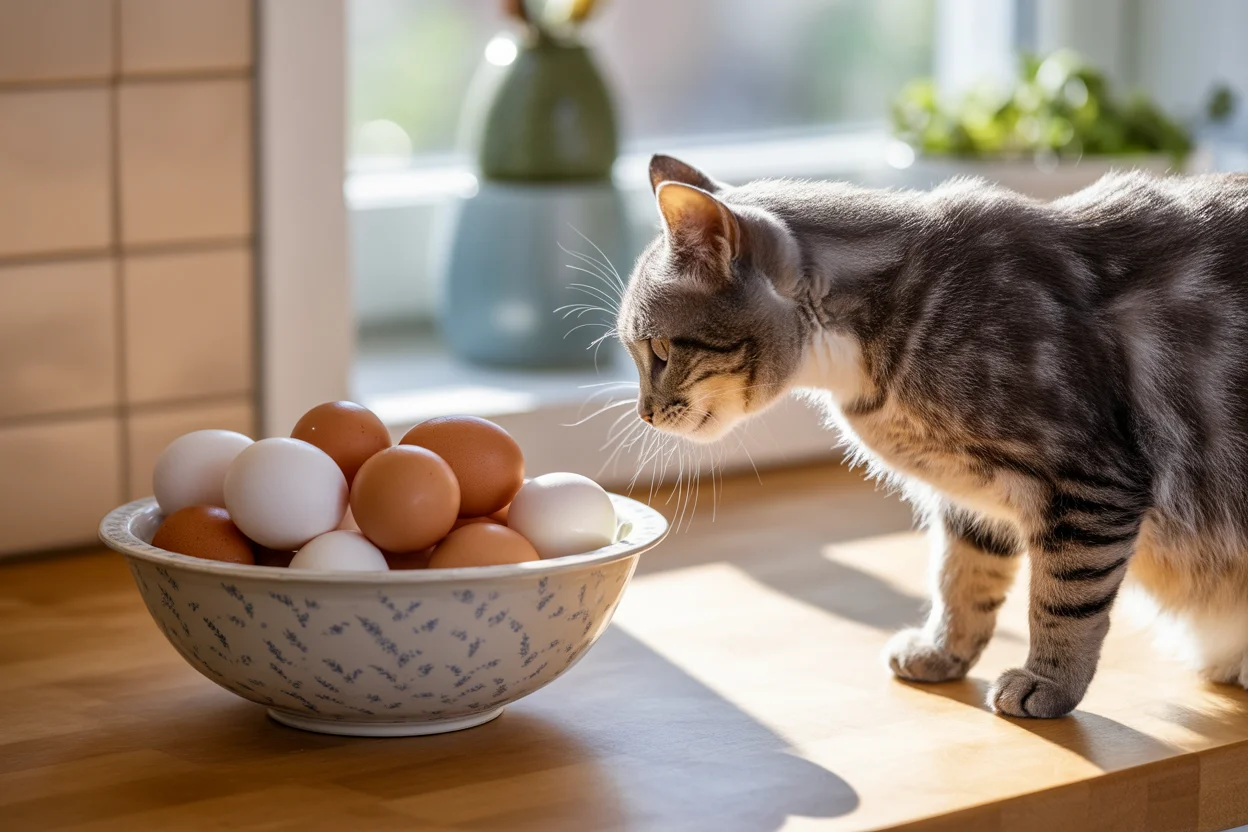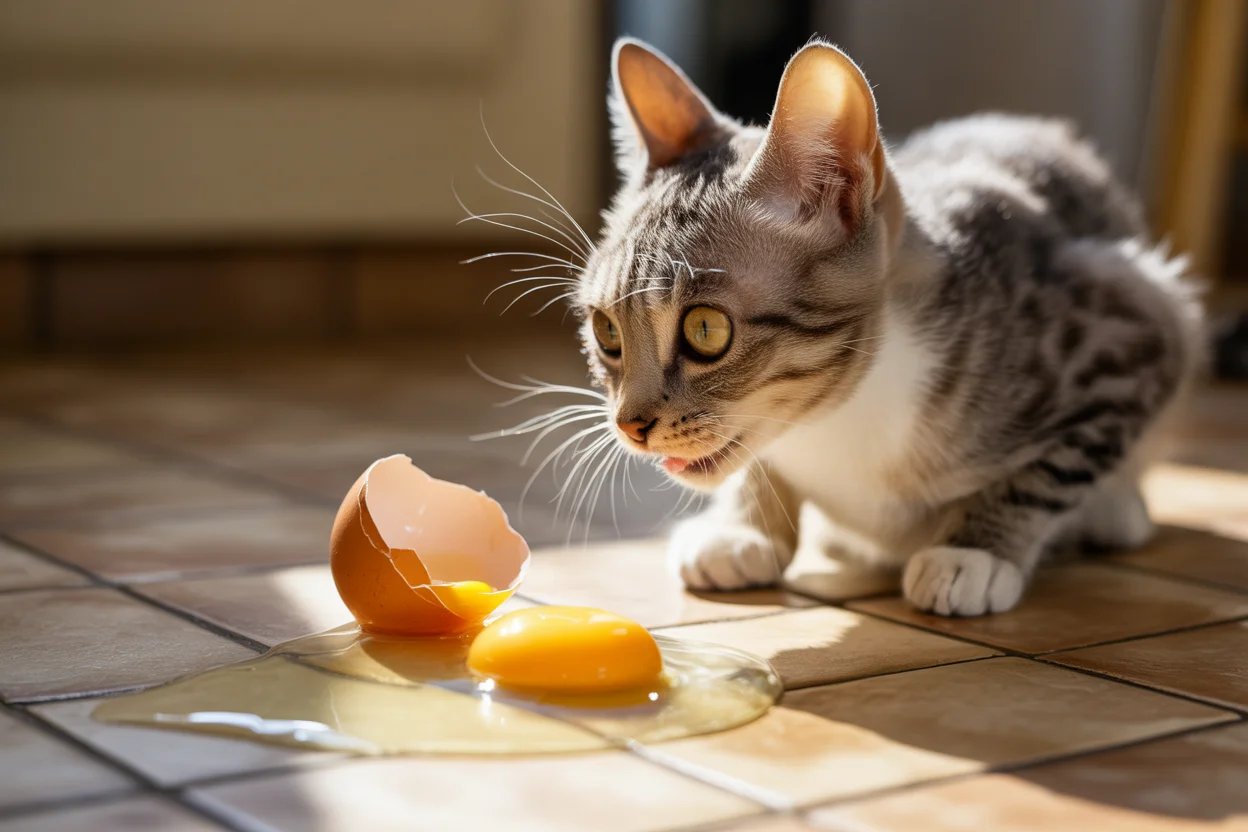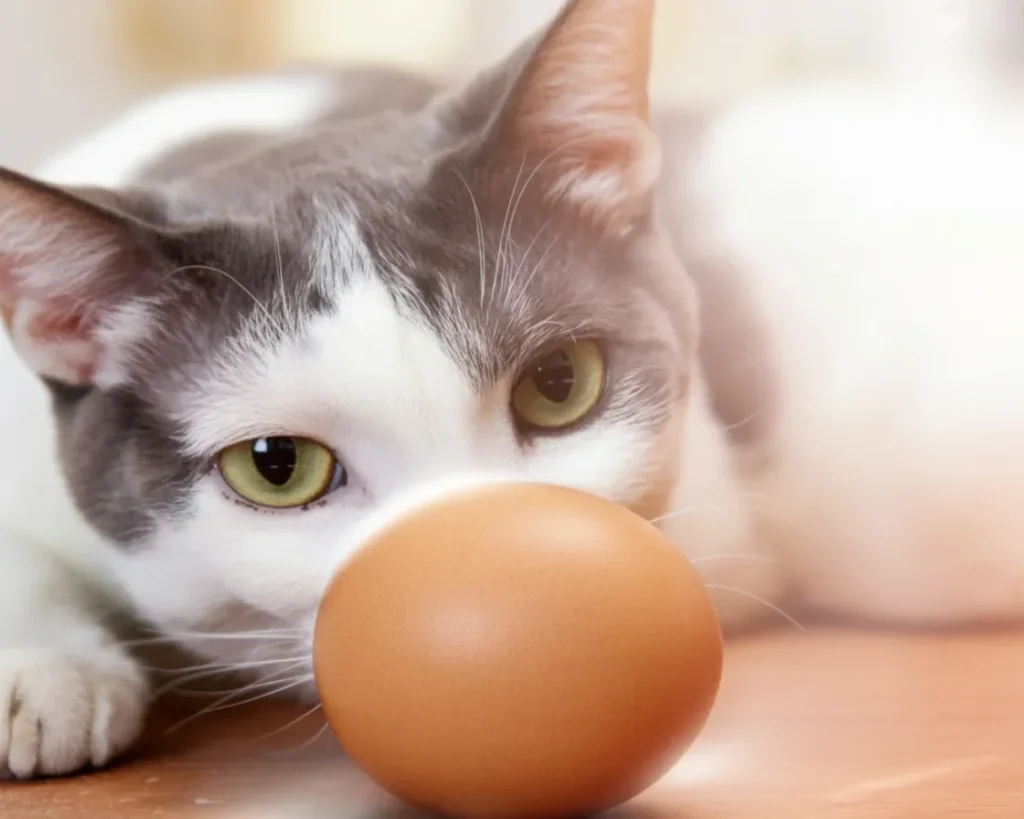Can cats eat eggs? You’re scooping out breakfast and curiosity pounces… again. I used to worry if my furry buddy would steal a mouthful—and once, he did (I panicked). With all the back-and-forth about “good” and “bad” people food, it’s easy to second-guess. Just like when you’re stressing over cat not eating and wondering if a treat might tempt them. Or you notice cat bad breath after a snack. So, is this breakfast classic a feline friend or foe? Let’s break it down—real simple. 
Are Eggs Good for Cats?
Here’s the meat and potatoes. Er, egg and shell?
- Cats can eat eggs, yes—but it’s not black and white.
- Eggs are packed with good stuff: protein, vitamins B, even amino acids cats crave, like taurine (though, fun fact—not enough to replace their actual food).
- Small amounts sometimes? Perfect snack boost. A whole egg omelet every day? Not the move.
- They’re low carb, which is pretty cat-approved.
“My vet gave me the greenlight—just make sure it’s simple and tiny. Omelet parties don’t end well for cats!”

;
Can Cats Eat Cooked Eggs?
You betcha—but let’s pump the brakes a second.
- Cooked eggs are the safest way. Scrambled, boiled, or poached (hold the butter, of course).
- Never add salt, oil, or spices. Cats and garlic powder? Even a sprinkle is risky!
- Tiny nibbles only. Think “cat-size.” A teaspoon chopped up is more than enough for a taste test.
- Eggs should be an occasional treat, not a meal replacement.
Are Raw Eggs Good for Cats?
Okay, brace yourself—here’s where it gets yucky.
- Raw eggs are not a smart move for cats.
- They can cause tummy upsets (who wants a cat with the runs… on a NEW rug?).
- Raw eggs can carry salmonella or E. coli—makes your whiskered friend sick, makes you sick. Not worth the gamble.
- Raw whites can block a vitamin cats need (biotin), so… just don’t.
How Much Egg Can a Cat Eat?
Cats are tiny (well, unless you’ve seen my neighbor’s Maine Coon…) so portions really matter.
- A tiny spoonful of cooked egg (once or twice a week at most) is more than enough.
- Too much and you risk weight gain, upset tummies, or even allergies.
- Monitor for weirdness, like itching or vomiting—some kitties just don’t vibe with eggs.
- If you’re ever unsure, or your cat’s weird after snacking, check with your vet.
Whats the Best Way to Give Your Cat Eggs?
Easy, breezy—it doesn’t have to be fancy.
- Boiled or scrambled egg (no seasoning, please!)—let it cool, then chop super tiny.
- Sprinkle a bit on top of their normal meals.
- Watch them closely—some cats glare at new foods like you offered them broccoli.
- For more protein snack ideas, peek at what I can feed my cat.
- Always skip the raw—germs and sneaky stomach issues need not apply.
Some cats act like you just brought a five-star restaurant to them. Others? They’ll sniff, maybe nibble, and walk away like you hurt their feelings (don’t take it personally).
If you notice anything odd after egg treats—say, hair thinning?—here’s a helpful look at hair loss in cats treatment.
Common Questions
Can cats eat eggs every day?
Nope—think “special occasion” not “daily buffet.” It’s not their main food.
Is cheese with eggs okay for cats?
I’d skip it. Cheese isn’t great for feline bellies and adds unnecessary fat.
What if my cat tastes raw egg accidentally?
One lick probably isn’t doomsday, but watch for sickness and call the vet if you’re worried.
Are eggs good for senior cats?
Older cats benefit from protein, but they may have sensitive tummies. Start tiny and watch, or ask your vet.
Why won’t my cat touch the egg?
Cats are picky, that’s just how they’re wired. Total normal.
Ready to Whip Up a Kitty Snack? Give It a Go!
So—can cats eat eggs? Yep, if you keep ‘em cooked, plain, and rare. A spoonful now and then is safe and—even better—your cat might adore it. Don’t force it. Each cat has their own way—some are foodies, some like their usual chow, no exceptions. Wanna learn more? See what nutrition pros like Purina and vets at PetMD have to say, or check out real folks sharing their experiences on Reddit. Try small, stay watchful—and enjoy those purrs!

